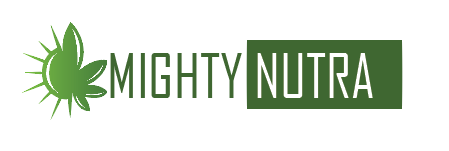Prescription drugs and advances in medical therapy have helped people escape disability and death as a result of disease for decades, while also lowering total treatment costs and lowering mortality rates from heart disease, stroke, cancer, and other deadly diseases.
In the fields of infectious diseases and emergencies, modern medicine has made significant progress. It has offered many people suffering from chronic inflammation and other autoimmune disorders a new lease on life by curing their conditions and reducing their symptoms.
Combining Modern Medicine with Alternative Treatment

Integrative medicine is a medical approach that use scientific techniques to merge conventional approaches with alternative approaches that have been proved to be safe and effective. This technique involves treating both mental and physical health components, and stresses the patient's choices.
Many patients are turning to holistic treatments, which they realize traditional medicine's methods are focused on alleviating symptoms instead of helping the patient recover. It's obvious why.
Alternative and traditional methods for therapy focus around the following principles:
- Treatment using both conventional and alternative medications
- an effort to perform non-invasive procedures whenever feasible
- the dedication to using solid scientific research to ensure the accuracy of diagnoses and treatment plans
- All things that impact health, wellbeing, and illness should be evaluated.
- a focus on maintaining wellness and preventing sickness via healthy living
Doctors are now using data-supported alternative therapies as part of their mix of traditional therapies to treat diseases and keep patients healthy. Doctors love this type of treatment because it allows them to employ the finest of traditional medical methods while also incorporating other tried-and-true complementary and alternative therapies that serve to better their patients.
When we are unwell, prescription medications cure us, dull our discomfort, and help regulate or prevent long-term problems.
But despite being successful, there are a lot of occasions when they might cause other problems for the user.
When NSAIDs and other powerful prescription drugs are regularly used for a long time, the danger of side effects grows. It is known that risks for such issues increase with aging.
The most common side effects are:
- gastric distress and ulcers
- GI bleeding in the digestive system
- increased risk of bruising
- asthma attack
- higher risk of heart attack, stroke, and blood clot formation
- Higher levels of inflammation, edema, and flare-ups due to trigger increase
It is crucial to understand that prescription medicine is not the best answer for treating pain, especially if that is a long-term goal. The health industry is increasing its offerings of medications that have less side effects in comparison to traditional prescriptions.
Alternative therapies are known for delivering high-quality outcomes while avoiding hazardous side effects due to their use of natural chemicals and organic plants. The major appeal of combining modern medicine with traditional therapies is that patients gain without experiencing harm.
Moringa is a dietary must-have thanks to its nutrient content. With 7 times the vitamin C of oranges, 10 times the vitamin A of carrots, 17 times the calcium of milk, 9 times the protein of yogurt, 15 times the potassium of bananas, 25 times the iron of spinach, and more vitamin C than oranges, it has better nutrition than spinach, which has vitamin C but also contains too much oxalic acid.
Studies have proven that the Moringa tree has great value in the treatment of a variety of conditions, including rheumatoid arthritis and chronic pain.
Moringa has anti-inflammatory drugs' same ability to combat inflammation in its blend of essential amino acids, antioxidants, and phytonutrients.
This powerful vitamin, turmeric, is maybe the greatest supplement in the world.
A significant number of top-notch investigations have demonstrated turmeric's significant health and mental advantages. The primary active component, curcumin, is responsible for many of the benefits.
In the future, it's quite possible that curcumin therapies will be quite beneficial for treating skin diseases. A great deal of study has concluded that curcumin is remarkably safe even at very large dosages. Osteoarthritis, multiple sclerosis, IBS, and other conditions can be treated with curcumin, which possesses powerful anti-inflammatory effects.
Bear in mind that merely eating turmeric isn't enough to receive all the benefits.
While turmeric is a rich source of curcumin, this compound is really present in very little quantities: only approximately 3% by weight. If you need additional strength or you have a tendency to suffer from heart disease, a supplement or extract that has a significantly larger quantity of curcumin may be good for you.
Omega-3 fatty acids are vital nutrients in avoiding and controlling heart disease, as they are necessary to maintaining good health. Eicosapentaenoic acid (EPA) and docosahexaenoic acid (DHA) are omega-3 fatty acids found in omega-3 fish oil (EPA).
Studies have discovered that omega-3 fatty acids might be helpful in:
- lower blood pressure readings
- Triglyceride reduction
- Prevent plaque build-up in the arteries
- lower the odds of cardiac rhythm irregularities.
- avoid heart attack and stroke
- Lowers the chances of fatal heart attack in patients with heart problems.
Foods include the omega-3 fatty acids that you obtain from your diet, but there are also fish oil pills if you don't want to eat fish. You might have to up your omega-3 fatty acid intake if you have heart disease or excessive triglyceride levels. Consult your doctor about how to increase your intake of omega-3s via larger dosages of fish oil supplements.
50% of the population annually utilizes an alternative medication of some kind.
Over 30% of Americans utilize health care methods that are independent of conventional medicine because to its lower incidence of adverse effects. This group includes NSAIDs, steroids, and other anti-inflammatory medicines.
Stopping your medication abruptly might affect your condition, as well as be harmful. Natural herbs can help you switch to better alternatives to meds that have fewer adverse effects.




